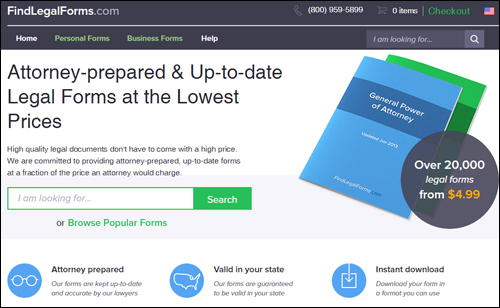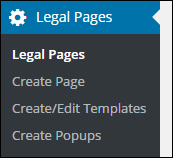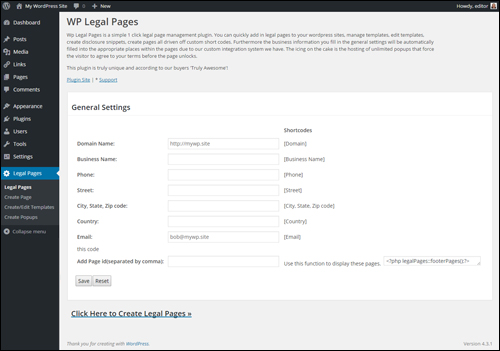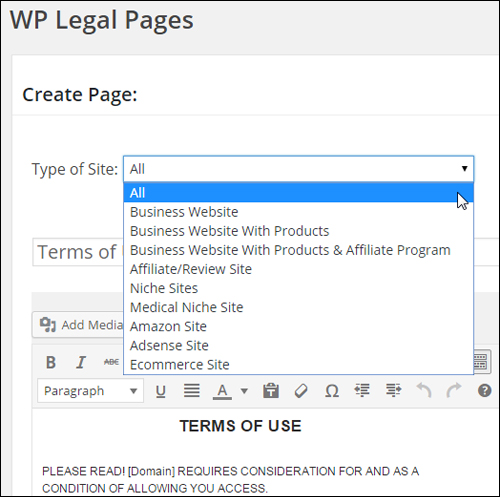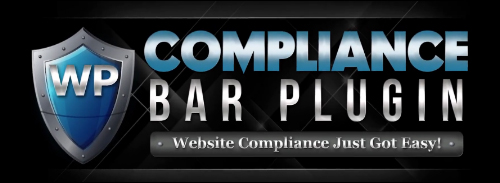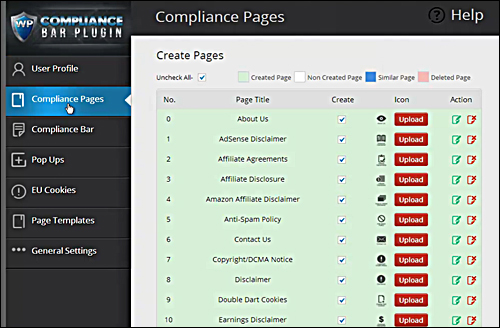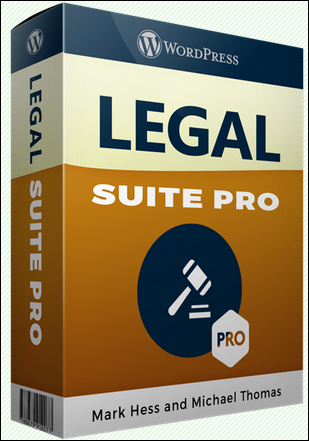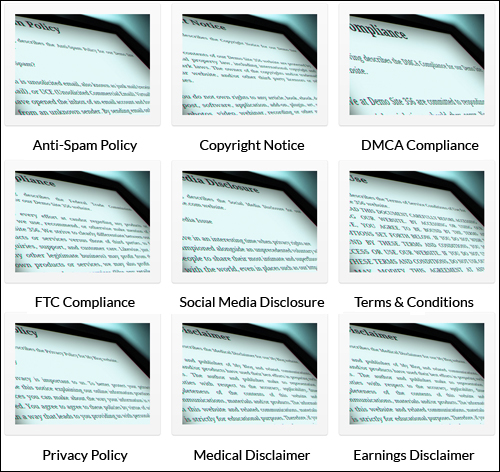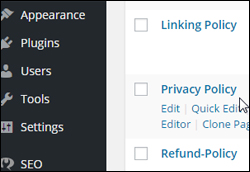
If you plan to grow a successful business online, you do not want to suddenly discover that you have been breaking rules or regulations.
As the cybersphere continues to grow at such a fast pace and the rules keep changing, it’s important that you stay informed about what’s going on and ensure that your website remains compliant, especially if your digital presence plays a significant role in your business strategy.
New laws introduced in 2014 regulating how businesses promote advertising on their websites state that if you promote anything on your site for profit, you need to follow certain disclosure guidelines to prevent enforceable orders being issued against you by regulatory agencies, such as the US-based Better Business Bureau (BBB). Search online for information about “The Online Interest-Based Advertising Accountability Program,” which regulates behavioral advertising across the internet to learn more.
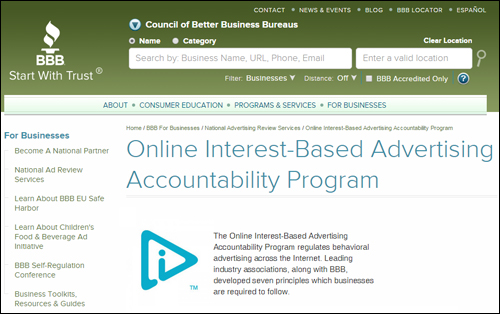
(Better Business Bureau)
These laws affect various online business categories, including:
- Any type of advertising, like PPC advertising
- Retarget Marketing
- Google Analytics (or other analytics software)
- Affiliate Marketers
- Product Creation
- Blogging
- etc.
If your website does not display certain legal pages to visitors (e.g. terms and conditions of use, privacy policy, earning disclaimers, etc.), many sites like Google won’t let you advertise, digital marketplaces like ClickBank or JVZoo will not approve digital products for sale, PayPal could suspend your account, Facebook will reject your applications, and you will not be allowed to enroll in most advertising or online marketing networks.
If your online business is not compliant, you could face a multitude of penalties, including fines, having your website shut down, even jail time!
In this article, we discuss the importance of having a compliant website and how to quickly and easily add legal pages to your site.

Is Your Website Breaking Rules Or Regulations?
![]()
Disclaimer: We are not lawyers and we do not offer legal advice in this article. Do your own due diligence and consult legal experts about the best way of ensuring that your website fully complies with all laws wherever you do business.
Why Having A Compliant Website Is Important
Is your business at risk? Consider what the implications to your business would be in the following scenarios:
- A person suffers a heart attack after they use your online fitness workout.
- The skin care creams you sell as an affiliate marketer gives a number of users skin rashes.
- Your opt-in list displays a statement informing prospective subscribers that you won’t sell their information, but you haven’t spelled out exactly what you plan to do with their personal details.
- Someone copies your content and publishes it on their own website.
- There is no statement on your website or blog making your visitors aware that you are promoting a product as an affiliate that you could earn a financial benefit if they end up buying via your link.
- You didn’t spell out the conditions of your return policies.
- Visitors claim that the testimonials on your site are misleading and try to sue you.
- You did not disclose in a product review that you were given a free copy of the product.
- Your website contains adult information and you haven’t taken sufficient measures to restrict access by underaged persons.
Consider also the real case studies of costly compliance breaches listed below:
- A CPA Marketer failed to provide adequate disclaimers telling online users they would have to give up personal information to complete a debt reduction offer. Cost = $390,000.
- A social networking app developer received a whopping $800,000 fine for collecting personal information without users’ knowledge and consent – including storing private information about children.
- Facebook’s Terms Of Service does not allow users to scrape Users IDs. Many internet marketers took a risk and lost. Their accounts were shut down, costing them thousands of dollars in lost revenue.
- An independently-conducted 2010 study by Brad Geddes of SearchEngineLand, showed that, of a couple of hundred randomly-picked websites, more than 90% had infringed at least one of Google’s policies, more than 65% were breaking at least 2 of Google’s policies, and more than 40% were breaking at least three of Google’s policies. Although the website owners could technically be sued by Google, more than likely what could happen, is that they would be issued cautions or lose access to the Google program with the violation, which could result in loss of income (e.g. AdSense or AdWords).
Can you see how a website owner can easily be exposed to the risk of litigation?
Regardless of whether you are a:
- CPA or PPA Marketer
- MLM Networker
- Affiliate Product Promoter
- AdSense Publisher
- Product Publisher
- Amazon Affiliate
- EBay Seller
- Adult Content Publisher
- Freelancer, Coach or Consultant
- Online Seller Of Any Service Or Product
It’s vitally important to make sure that your online business stays legally compliant.
Complying With Third-Party Services
All the big online companies and government regulatory agencies emphasize the need and importance of observing the terms and policies of third-party service providers.
You are required to let your site users know that your business complies will all legal requirements and professional guidelines. This not only improves consumer trust and confidence in your business, it’s also required by most companies you will engage with online.
For example:
Google requires websites to display legal information if using their services. This includes Google Analytics …
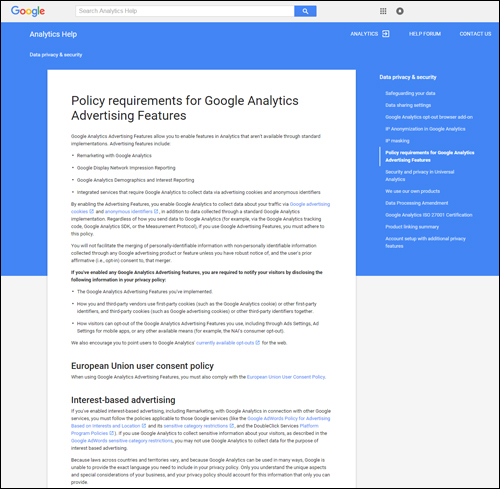
(Policy requirements for using Google Analytics)
Making money online with your online properties with Google AdSense display advertising …
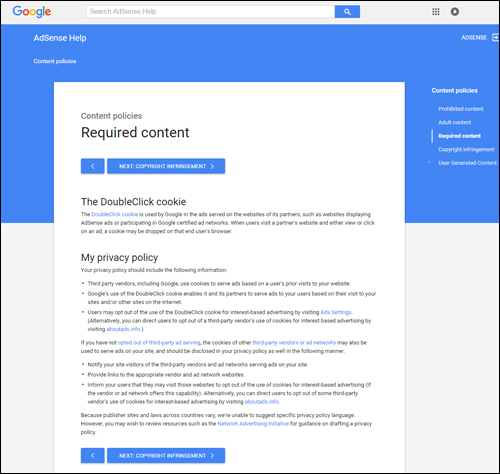
(Google AdSense advertising - policy requirements)
Or promoting your site via Google AdWords …
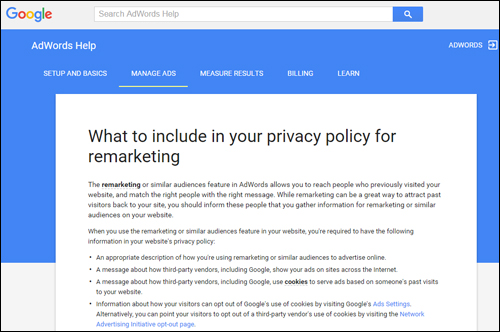
(Google AdWords – Policy Requirements)
If you sell information-based products via places like ClickBank, JVZoo, or other established merchant sites, you will need to add various legal pages to your website before your products are approved for sale …
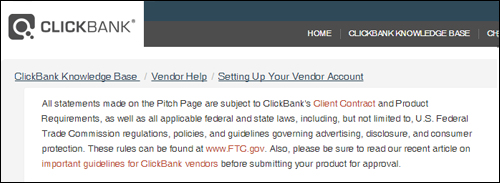
(ClickBank – policy requirements)
The FTC (Federal Trade Commission) also requires you to display clear disclaimers and policies to visitors, especially when concerning the use of product testimonials or endorsements …
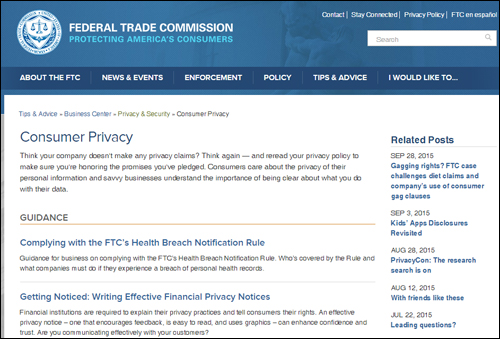
(Federal Trade Commission – consumer guidelines and regulations)
FTC Regulations – Ensure That Your Website Is Compliant
New FTC regulations governing the conduct of businesses online were introduced in March 2012. A quick search online will reveal that many business are still unaware (or choose to ignore) these requirements. As is already the case, this will most likely prompt the FTC to make an example of businesses and prosecute companies for breaches of regulation in an effort to get other businesses to comply.
If you do any type of business online, therefore, it’s best not to take chances. Even if your business is not located in the U.S. you should protect your business interests by ensuring that your site is compliant with all FTC guidelines.
There are many sites that can provide guidelines on how to structure disclaimers and disclosures to help your site comply with FTC requirements. See the resources section at the end of this article for more information …
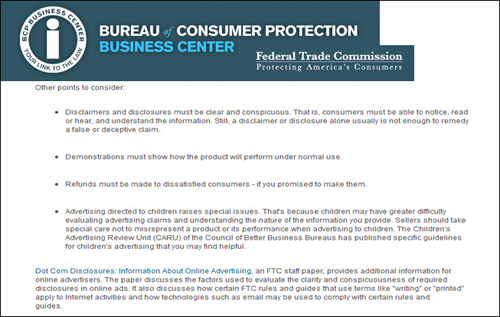
(Structure your disclaimers and disclosures correctly to avoid running foul of laws and regulations)
Social Media Apps - Don’t Forget These
If you plan to develop social networking applications for your site users, sites like Twitter, Facebook, and many others will require you to provide information about your legal pages …
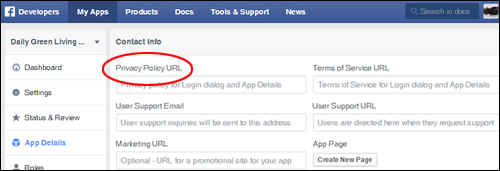
(Apps for social networking sites also require compliance)
![]()
- If you are unsure as to whether you are breaking the law, and/or Terms of Service policies and guidelines of service providers like Google, Facebook, etc., then assume that you most probably are.
- If you plan to promote anything online using affiliate marketing, or generate revenue with Google AdSense, Amazon, or eBay advertising, or using Google AdWords pay-per-click ads to drive visitors to your pages, etc., then find out exactly what kind of legal information you are required to provide on your site to comply with all Terms Of Service and policy requirements - don’t risk having your accounts shut down.
- If you have ever wondered if “borrowing” a Copyright Notice is Copyright infringement, take proper precautions to protect yourself and your business interests.
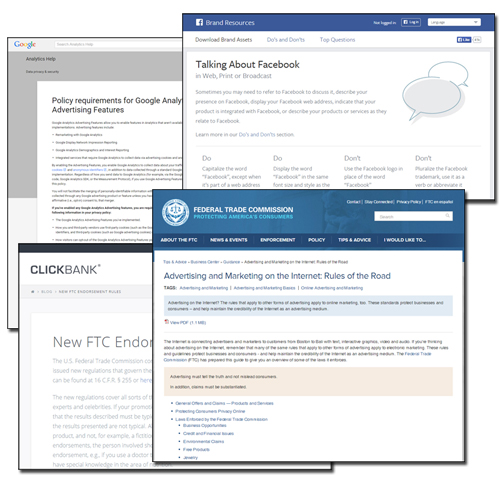
(In addition to legal and regulatory compliance, most 3rd-party services require you to comply with their terms of use)
What Legal Information Should You Add To Your Website To Be Compliant?
If you suspect that your web site is falling short in terms of compliance, then this section will help you.
At its most basic, adding the following compliance pages to your site should help your site keep out of trouble with most regulatory agencies and 3rd-party providers, and even help you avoid possible legal issues):
- About Us Page
- Contact Us
- Privacy Statement
- Terms And Conditions
- Disclaimers
- General Data Protection Regulation (GDPR) Compliance
Additionally, you may want to consider including any of these legal pages:
- Affiliate Disclosure (if you provide information about affiliate products or services)
- Anti-Spam Policy
- Compensation Disclosure
- External Links Policy
- Health Disclaimers (if your website provides general health or medical content)
- Refund Policy (if you run an e-commerce site)
- Video/Audio Terms (e.g. if you allow users to download videos or audio files on your site)
Disclosure Pages – Types
Adding correct disclosure information to your website is important. For example:
- No Material Connection – Informs readers that you’re not being paid for writing the post.
- Affiliate Links – Lets your readers know that you will be compensated if they act on your recommendation and buy through your affiliate link.
- Sample Or review Copy – Discloses to users that you have received a review or sample copy of the product or service.
- Sponsored Post – Informs readers that you have been compensated in some form to write the content.
- Third Party Advertising – Informs readers that you’re using online behavioral tracking technology. This is required to comply with the “enhanced notice” the Better Business Bureau has been requiring online publishers to display prominently on their sites since January 1, 2014.
How To Add Legal Pages To Your Website
Ideally, you should consult a lawyer or a legal firm and ask them to prepare the content of your legal documents. Once this has been completed, there are several ways to include them in your website.
Uploading Legal Pages To Your Website
If someone prepares the legal verbiage for you as standard web pages (e.g. HTML), you can simply upload these to your web server, or have someone upload these pages for you.
We recommend creating a legals folder in your web server and uploading HTML pages containing your legal documentation to this folder (e.g. via FTP) …
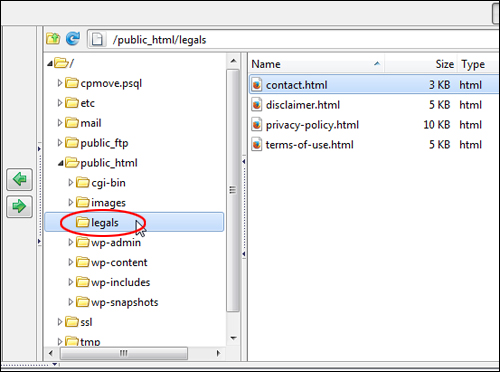
(Create a ‘legals’ folder on your server and upload pages via FTP)
You can then easily add links to your pages from your WordPress site using a custom WordPress menu …
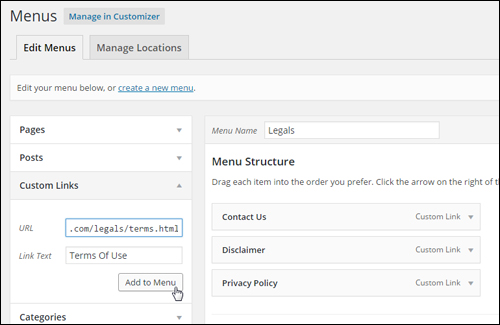
(WordPress Menu)
Displaying Legal Web Pages On Your Website
Make sure that your legal pages are up-to-date and clearly visible to all visitors. You can add these to the WordPress sidebar (or the footer section of your site) to ensure that users can access legal information from every page …
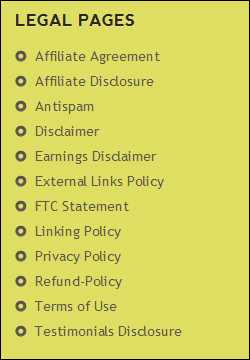
(Display links to legal information to users on all of your website’s pages)
To learn more about displaying links to pages on your sidebar and footer in WordPress, refer to this step-by-step tutorial:
Templates
You can easily find downloadable attorney-drafted forms and agreements by searching online, or by going to websites like this one:
Find Legal Forms
More information:
Alternatively, you can download a set of cut and paste legal templates designed by attorney Scott Talbert to protect businesses online …
Cut & Paste Website Legal Pages
(Cut And Paste Website Legal Pages – Website Legal Pages)
These templates feature less passive voice and more plain language phrasing and can be customized with simple search and replace to insert your own business name and URL, then pasted into your legal web pages.
The legal templates included in Scott Talbert’s Legal Forms include:
- Anti-Spam Policy
- Copyright Notice
- Disclaimer
- DMCA Compliance
- Federal Trade Commission Compliance (This proprietary FTC page accommodates Federal Trade Commission regulations and guidelines that came into effect on March 2012)
- Privacy Policy: Google, DoubleClick DART, etc.
- ToS & Conditions of Use.
You can either create a new WordPress page for each legal form you want to add to your website, then paste the content from the templates into your web pages and publish or upload your legal pages to your web server as described earlier.
More information:
Legal Pages – Plugins
In addition to using legal templates, you can keep things really simple using plugins.
Here are some plugins for WordPress-driven websites worth looking into:
WordPress Legal Pages Plugin
(WordPress Plugin – WP Legal Pages)
If creating legal pages manually feels too time-consuming for you, then consider using WordPress Legal Pages instead …
WordPress Legal Pages is not a free plugin, but it’s an affordable and well-supported premium WordPress plugin that will help simplify the job of creating and implementing legal pages on your website and save you time.
Here are just some of the benefits of using the WordPress Legal Pages plugin:
- Pre-written Templates – Over 20 built-in legal page templates created by professional lawyers.
- Very Quick And Easy To Use – You can set up most of your basic legal pages in around 3 minutes with a few mouse clicks.
- Customizable Pages – The plugin includes customizable and completely editable legal form templates (e.g. Terms of Use, Disclaimer, Privacy Policy, Earnings Disclaimer and more!)
- Editable Pages – Full WYSIWYG editor lets you edit all legal pages just like any page on your site.
- Custom Shortcodes Integration – You can add shortcodes to any of your WordPress pages and the information is then automatically inserted into your content when published.
- Exclude pages. The plugin lets you exclude pages from menus with a simple check box and delete and manage these like any other page on your site.
- Forced Options – Force page lockdown. Page unlocks when user agrees to your terms.
- New Features – More features are being added to this plugin with each new version.
After installing WordPress Legal Pages, a menu feature will appear in your main WordPress dashboard area …
(WP Legal Pages Plugin For WordPress – Legal Pages Menu)
This lets you create, edit and view your legal pages from the admin area …
(WP Legal Pages Plugin – Settings)
The plugin gives you the option to create legal pages for different online uses, such as business websites, affiliate/review sites, medical sites, etc …
(WP Legal Pages Plugin – Page Type)
Choose from a number of built-in legal templates …
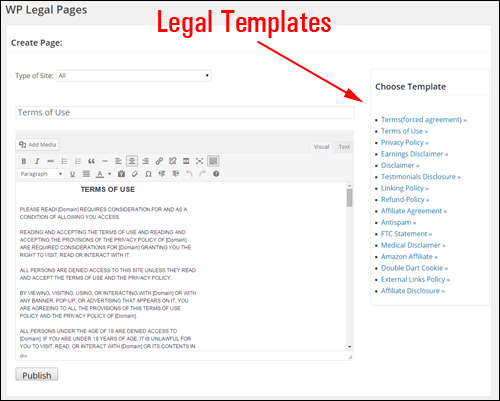
(WP Legal Pages Plugin – Built-In Templates)
Legal page templates include:
- Terms of Use (Users are forced to agree to Terms and Conditions before using site)
- Linking Policy
- External Links Policy
- Terms and Conditions
- Refund Policy
- Affiliate Disclosure
- Privacy Policy
- Affiliate Agreement
- Facebook Privacy Policy
- Earnings Disclaimer
- Antispam Policy
- DoubleClick DART Cookies Policy
- Disclaimer Template
- FTC Disclosure Statement Template
- Medical Disclaimer Template
- Testimonials Disclosure – As per FTC guidelines
- Amazon Affiliate Disclosure Template
- DMCA Policy Template
- California Privacy Rights Policy Template
- Digital Goods Refund Policy Template
- COPPA – Children’s Online Privacy Policy Template
- Blog Comments Policy Template
- Newsletter Subscription Policy and Disclaimer Template
- FTC Disclaimer Widget
To learn more this powerful plugin, visit this site:
Compliance Bar Plugin – Compliance Plugin For WordPress
Compliance Bar is a simple WordPress plugin that includes over twenty customizable legal page templates for your digital presence …
Learn more about the plugin here:
Legal Suite Pro
(Legal Suite Pro Plugin)
This plugin lets you easily install professionally-written legal pages such as:
- Anti-Spam Policy
- Copyright Notice
- DMCA Compliance
- FTC Compliance
- Privacy Policy
- Social Media Disclosure
- Medical Disclaimer
- Terms And Conditions
- Earnings Disclaimer
(Legal Suite Pro – Professionally-written legal forms)
Additionally:
- Drag & Drop FTC Disclaimer Widget: Add an FTC Disclaimer to any WordPress sidebar or widget area.
- Customizable EU Cookie Compliance Bar: Display an EU cookie compliance bar if you are getting traffic from the EU and your sites use cookies.
With just one-click you can install almost all of the legal pages your site needs and these professionally written legal pages can be created in your theme and/or as a standalone page outside of your theme.
The plugin developers have packaged high quality, professionally written legal disclaimers into a plugin that can be installed quickly on any WordPress site. Your legal pages can be installed and set up on your site in one minute or less and the plugin licensing is very flexible, allowing you to install and use this plugin on all of your sites (even sites that you decide to sell).
More info:
![]()
If using the services of a lawyer to create your legal pages is out of your budget, consider implementing at least some basic kind of legal protection on your site until you can afford professional assistance.
We want your site to be protected!
Download the FREE Legal Pages Generator software below, or consider using one of the better solutions we discuss in this article, such as using ready-made legal templates, or a WordPress legal pages plugin as described in the section below.

(Legal Pages Generator Software)
Legal Pages Generator Software lets you easily generate necessary legal documents for your website including ToS, Privacy Policy, Copyright Notice, Website Disclaimer and Earnings Disclaimer.
***
As we’ve previously pointed out, if you make money online, you need to make sure that your website remains compliant with government legal requirements and the guidelines and terms of service (TOS) for 3rd-party products and services that you may be promoting or recommending online. Your website or blog must comply with a number of laws and regulatory guidelines, some of which you may not even be aware of.
Non-compliance puts you at risk of suffering both financial losses and the loss of your reputation. Why risk your money and reputation, when you can protect yourself so inexpensively?
![]()
Legal Disclaimer: Once again, we are not lawyers and we provide no legal advice here. We strongly advise you to do your own due diligence and consult legal experts about the best way of ensuring that your website fully complies with all legal requirements regarding your specific business.
Resources
Below is a useful list of sites we suggest you visit to better understand what your business requires to remain compliant and meet its legal obligations:
- Federal Trade Commission Latest List Of Rules & Regulations
- FTC Advertising & Marketing Rules Of the Road
- FTC Advertising And Marketing On The Internet
- Online Interest-Based Advertising Accountability Program
- Dot Com Disclosures: Information About Online Advertising
- Restore Online Shoppers’ Confidence Act
- CAN-SPAM Act Guide
- Children’s Online Privacy Protection Rule
- FTC Regulatory Review Web Page
- FTC Rules and Guides Currently Under Review
- The Department of Commerce Internet Policy Task Force – Commercial Data Privacy and Innovation in the Internet Economy: A Dynamic Policy Framework
- FTC Staff Report: Self-Regulatory Principles for Online Behavioral Advertising
- FTC Final Guides Governing Endorsements and Testimonials
- United States Patent and Trademark Office
- US Copyright Office
See Also …
- Analytics Help – Policy requirements for Google Analytics Advertising Features
- Google AdSense Program Policies Explained
- AdSense Help – Required Content
- Google AdWords – Information Collection And Use
- Google AdWords Help – What to include in your privacy policy for remarketing
- ClickBank – Creating Your First Product
- Facebook Platform Policies
We hope you have found this article useful and that it has helped you understand why it’s important to have a legally compliant website. Use the information presented above to quickly and easily add legal pages to your website.
***
"I am beyond impressed with what you have put together. I can tell that you put a ton of hard work into building what you have. You have the absolute best content on WordPress I have ever seen!" - Robert T. Jillie
